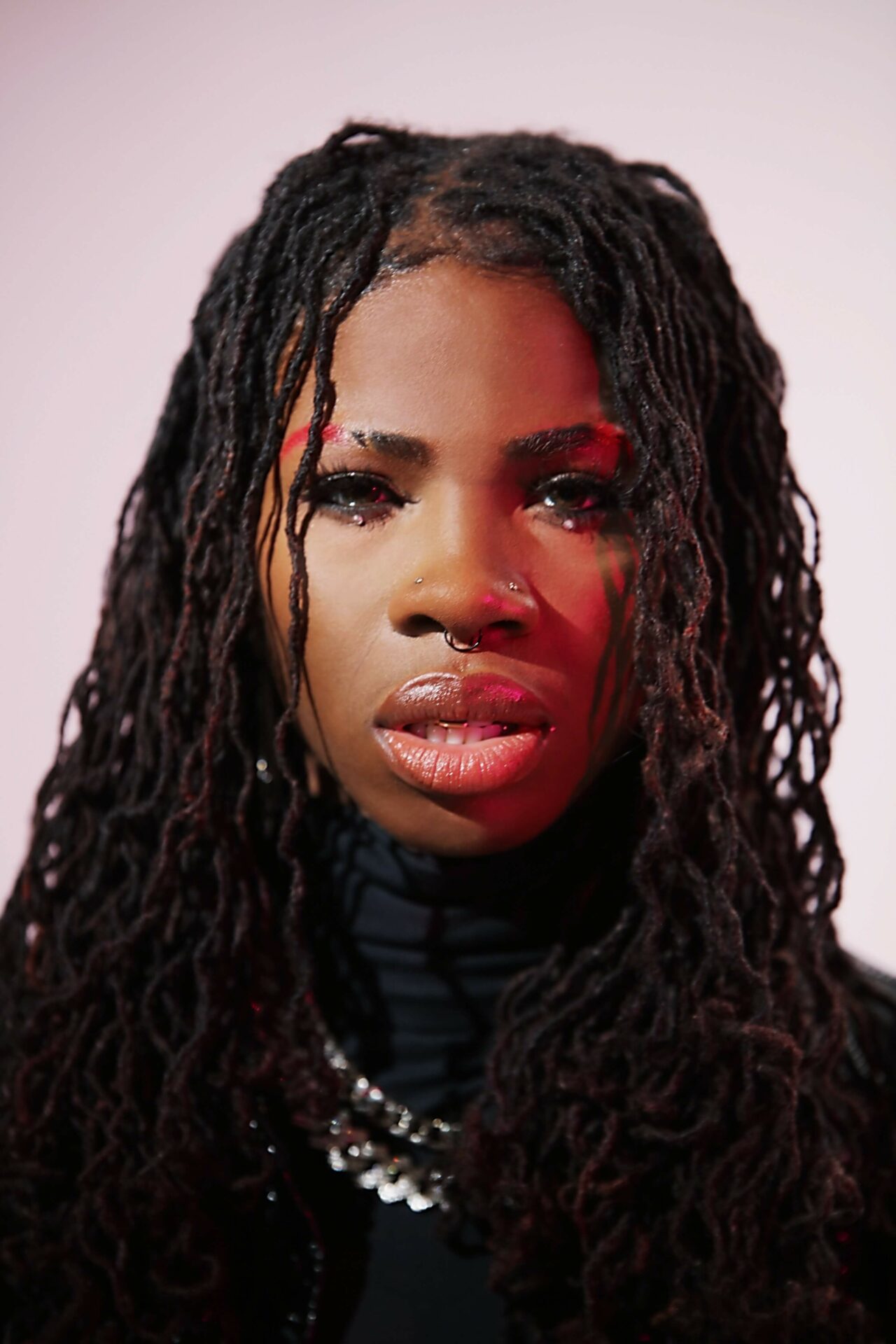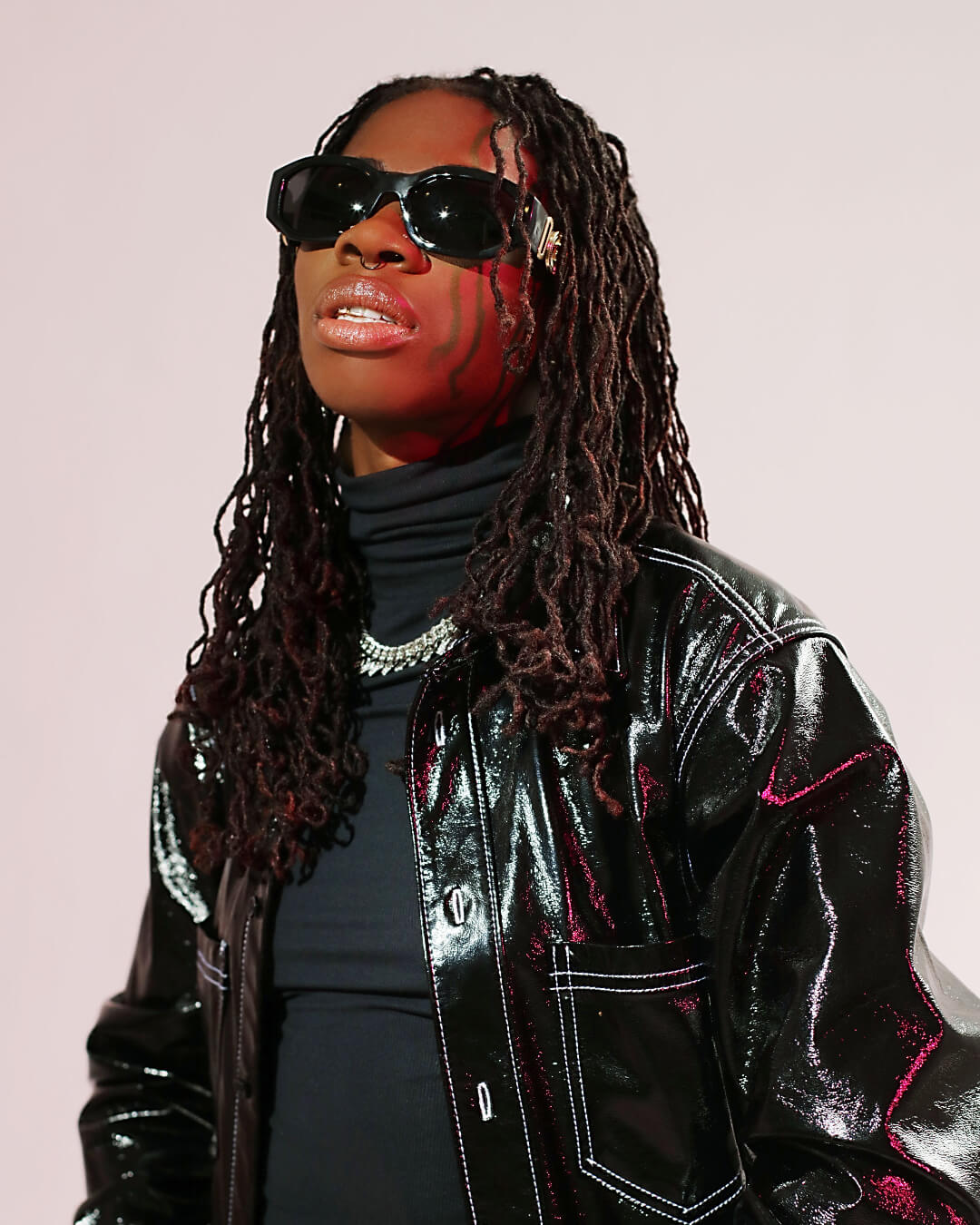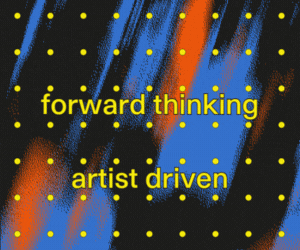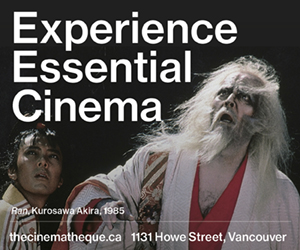Haviah Mighty Becomes the Main Character
This time it’s personal for the celebrated Toronto rapper.
By Ben Boddez
Photo by Yung Yemi
- Published on
Often one to masterfully tackle issues of discrimination or dive into her Caribbean heritage, Mighty’s penchant for a danceable party tune or a sensual R&B jam hasn’t been quite as recognized – something she’s often called out herself. Tapping into the increasingly globalized sounds of Afrobeats, amapiano, and dancehall coming out of her hometown, Mighty’s latest project, Crying Crystals, is a club-ready project that is as emotionally-charged as her political oeuvre. Only this time it’s more like cracking open one of her personal diary entries.
“Crying Crystals means the pain and the hardship manifests into a positive end result,” she says. “Not knowing when you’re sticking it through where you’re going to end up, but that crystallizing into becoming gems, and becoming my glow-up album.”
That hardship arrived in the form of a devastating breakup, the full story of which is recounted in chronological order over the course of the tracklist as Mighty goes through all five stages of grief and arrives on the other side having learned from it. The mentality of being able to flip a negative into a positive has seemingly followed Mighty throughout her entire life: she’s spoken in the same way about finding personal strength through surviving experiences with trauma in her past. Despite being associated with the Toronto hip-hop scene, Mighty actually found more of a community in Brampton when her musically-oriented family moved there after experiencing racially-charged threats.


Growing up among three singing sisters – one of which, Omega, appears on Crying Crystals – a brother willing to lend her some of his beats from childhood to the present day, and parents whose vinyl collection represented a canvas for her to learn some scratch DJ skills, Mighty’s work has always been a family affair. But despite being connected through blood and countless hours in the studio, Mighty says there’s no such thing as auto-pilot while working with her family – they’re still actively trying to discover new ways to create with each other. Most of all, she credits them with instilling within her a dedication to her craft.
“When it comes to my earliest musical experiences with my family, I would say I carry the commitment the most,” she says. “Not just listening to it, but the exposure to creating and performing it really young. I think that carries through to what my live show is like, or even my approach to the storytelling aspect, which is very important to me. They made me see music as much more than just a medium of sound – there are stories from it that can be valuable and impactful.”
When she’s not offering her smooth vocals to the more soulfully-oriented tunes on the project, Mighty’s rap voice is gritty and hard-hitting, punching through the wall of any mix with percussive syllables that make any of her points impossible not to pay attention to. When you combine that with the power of a natural storyteller, it’s easy to see why she names 50 Cent’s 2003 classic Get Rich or Die Tryin’ as the album that made her want to become a rapper.
“Even though the majority of the listeners might not live the life of crime or figure out how they’re going to eat in a day, they still felt the energy, they felt like they understood the antagonist and protagonist in the story of each song, and he was able to communicate his pain and his hardship,” she says. “I think his ability to tell such a specific story in such a globally impactful way really stuck with me.”

Although Mighty has released four full-length projects before Crying Crystals, she only prefers to attach the label of “album” to 13th Floor, as she feels an album must be centred around a recurring theme – although she retroactively considers 2021’s Stock Exchange an album as well, after her storytelling instincts couldn’t stay away and a theme of discovering personal value arose in a collection that wasn’t initially intended to have one. When it comes to the recurring theme of her latest, she hopes she’s able to communicate to listeners the notion of being able to feel every moment deeply throughout the process of healing.
“I was living the theme! A relationship creating a tumultuous chain of events that I didn’t know how I was going to get through and be better for it. Personal experiences are something I danced around, focusing more on things that were external to me. I was too scared to get into the vulnerabilities, but I felt like it was therapeutic for me to get this project out – because as I’m putting out each single, I’m living the experience and seeing me grow from it,” she says. “The a-ha moment was that you can’t go around it, you have to go through it to actually heal. This project was trying to find different ways to go around it, and realizing I had to go through until I came out on the other side. And I was ready for it.”
Despite Mighty’s initial apprehension towards covering more personal topics, discovering this therapeutic element during the recording sessions allowed her to come to the conclusion that her latest writing process was an easier experience than her endeavours to sum up decades of history on some of her more politically potent tunes – for the most part.
“It was technically easier, but emotionally heavier,” she says. “When it comes to talking about things outside of me, the observation is almost like studying. I guess you’re studying yourself too with a project like this, but it’s easier to study yourself when you live it. It’s really fun to do research-based creation or focus on an idea bigger than me. But I think for the first time it was necessary that I focused on the very essence and raw core of me and get to know that person better. That’s what informs everything else.”
One of the project’s highlights when it comes to Mighty fully embracing that discovery of who she is manifests itself on the track “Main Character,” which fits into the story when Mighty is slowly starting to move on from the relationship. The online response to the increasingly viral term that serves as the track’s title has often portrayed someone who believes themselves to be the ‘main character’ as an entitled or selfish person – the kind of person who would block traffic to film a TikTok dance. After a recent social media post that found Mighty imploring people not to be afraid to take up space, she has a bit more of a positive spin on the idea.

“I do feel confident in the space I take up, and I spend a lot of time worrying about how other people feel about that. So this is me overcoming things that have prevented me from being my best self,” she says. “Not feeling like I have to make space for your sensitivities, because my life being great doesn’t dim anybody else’s. I don’t have the capacity for those emotions anymore because they’re at my detriment.”
Subverting expectations in this fashion is something that’s always come naturally to Mighty – after all, she’s often been outspoken about the gendered expectations that often skew female hip-hop into certain boxes, and being able to exist outside of them. While she’s simultaneously cheering on her peers and celebrating a unique moment in pop culture as more and more women rise to the top of the charts every day, Mighty takes pride in her rise in profile giving a voice to those similarly on the outside margins of the mainstream when it comes to, subject matter, style of dress and general demeanour.
“Those expectations work for some people, because it’s authentically them – you get a lot of the oversexualization, and a lot of themes of the music are going to be the same. There’s a lower risk in working with a formula that’s worked before,” she says. “I’m not the common thing, and I think that’s my superpower – but it’s also a setback because it requires education. So I think a lot of my career is going to be educating and opening people’s minds to be receptive to other things. But I think I’m opening those doors for the next artists that come with a unique angle to grasp a larger audience. We are now asking for different vibes. We’re less fulfilled by the same things.”
Now having studied herself enough, Mighty is ready to present her dissertation of her personal reactions to the moments both before and after the critical moment when a relationship splinters in two – and what they mean for moving forward into the future – in the form of Crying Crystals. When asked about her personal advice for picking yourself back up and starting over, she simply stressed going with the flow.
“Focus on letting go of what ifs and recognize that the focus should be on what is. We have this preconceived notion of how things should go, and so when it’s dynamics that we share with other people, we sometimes try to manipulate those dynamics so that they work,” she says. “Our subconscious is like, ‘Let’s do something to change the direction.’ But I find that in the end, you just prolong the process. You can’t control things. So take the time to understand why you react the way you do – are you trying to force things, or is it actually moving in that direction? We all want it to last, but sometimes it’s not supposed to. Trust you can go through it, and you’ll be a better person on the other side.”
By Stephan Boissonneault
Nate Amos revisits a decade of stray ideas and turns them into his most compelling record yet.
By Khagan Aslanov
Mike Wallace’s electro-punk project premieres the hypnotic, percussion-driven video for "Certain Days."











